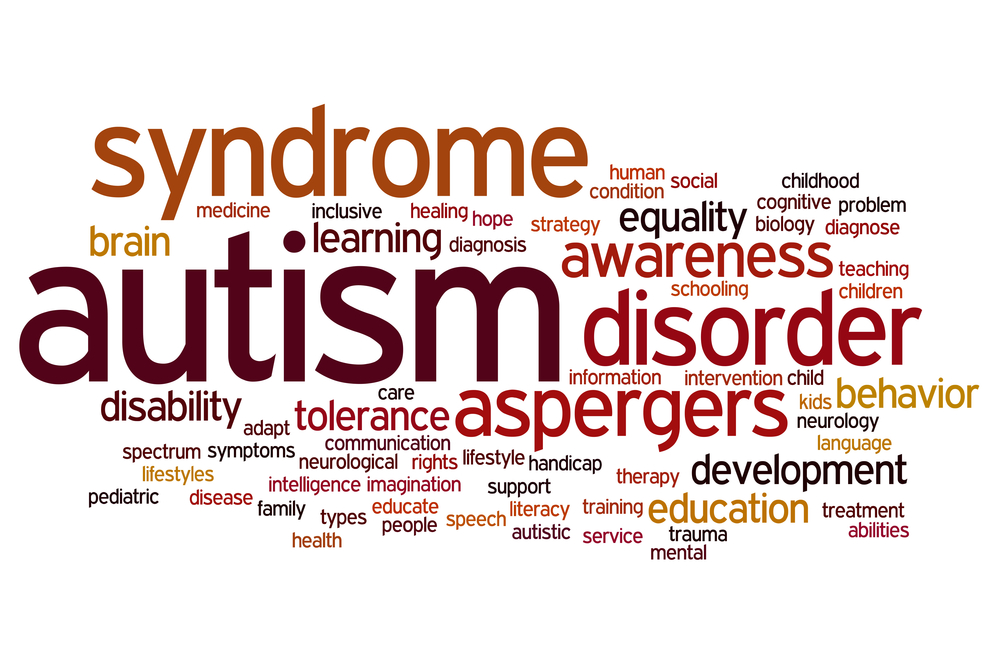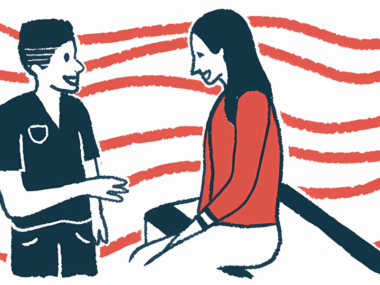More Parkinsonism Features Found in Older Autistic Adults
Written by |

Middle-aged and older autistic adults with no intellectual disabilities reported more prevalent Parkinson’s disease-like features — referred to as parkinsonism — compared with the general population, a study found.
These findings provide important knowledge about aging disorders such as Parkinson’s among older people with autism spectrum disorder (ASD), according to researchers, who note there is scant such data currently available.
“The key conclusion of this study is that self-reported parkinsonism features are prevalent in middle and older age autistic adults without a suspected [intellectual disability],” the investigators wrote.
“Moreover, given the scarcity of existing knowledge of aging in ASD, including the prevalence of disorders associated with aging, such as [Parkinson’s disease], documenting aging-related syndromes among older autistic adults is critical to understanding well-being and outcomes in autistic persons,” they wrote.
According to the investigators, more research is needed to determine the cause of the “markedly elevated parkinsonism features” found in people with autism in this study, which involved more than 500 adults in the U.S. and the Netherlands.
The study, “Self-reported parkinsonism features in older autistic adults: A descriptive study,” was published in the journal Autism.
Parkinson’s is characterized by the loss of nerve cells necessary for body movement. In addition to motor symptoms, such as tremors and stiffness, patients with the neurodegenerative disorder also report sleep disturbances, digestive tract problems, mood disorders, and cognitive difficulties.
Some of these same parkinsonism features are also experienced by people who have received a diagnosis of autism spectrum disorder, known as ASD.
Previous studies have suggested that younger and older autistic adults are more likely to be diagnosed with Parkinson’s and related disorders than the general population. However, many of these studies included autistic people with intellectual disabilities, which may influence higher parkinsonism rates.
Now, researchers in the Netherlands and the U.S. sought to gather more information on parkinsonism in middle-aged and older autistic adults without intellectual disabilities.
This study, conducted by a team from the University of Amsterdam, with collaborators from George Mason University, in Virginia, and George Washington University, in Washington, D.C., enrolled 296 autistic individuals in the Netherlands and 209 in the U.S. The participants were between the ages of 50 and 83. In all, 38% of the Dutch participants were female, as were 52% of the Americans.
Autistic traits were assessed with the 28-item Autism-Spectrum Quotient (AQ-28), with higher scores reflecting more autistic traits. Such traits included repetitive behaviors and restricted interests, as well as differences in social communication and interaction.
Parkinsonism symptoms were measured using the Parkinsonism Screening Questionnaire (PSQ), a six-item self-reported assessment originally part of existing parkinsonism and Parkinson’s screening measures. Items that optimally differentiated between parkinsonism and an age-matched comparison group (COMP) without parkinsonism were selected. Higher scores indicated more parkinsonism features.
Both a total PSQ score and a PSQ screening score were reported, with the screening score weighed more toward tremors versus stiffness. A score of 7 served as the cut-off for distinguishing those with Parkinson’s from those without.
Importantly, while people with autism were not involved in the design and administration of this study, all questionnaires included in the Netherlands’ sample were checked and approved by members of the autistic community.
The results from the Netherlands group showed a mean AQ-28 score of 85.2, with nearly all (94.3%) scoring above the ASD cut-off of 65.
Most of these autistic adults reported co-existing medical conditions (67%), as well as mental health problems (42.1%), and the need for psychotropic medications (26.9%) such as anti-depressants, anti-anxiety therapies, and antipsychotics.
The U.S. group had a mean AQ-28 score of 86.4, with almost all participants (96.6%) scoring above 65. Similarly to their Dutch counterparts, most U.S. autistic adults had co-occurring medical conditions (83.7%), and/or mental health problems (85.2%), and many were taking various psychotropic medications (58.8%).
In the Dutch group, 64.5% gave an affirmative answer to at least one PSQ item, and 50 out of 296 (16.9%) scored above the PSQ screening cut-off. In comparison, in the U.S. group, 81.3% of participants gave an affirmative answer, with 69 of 209 (33%) scoring above the screening cut-off.
“For the first time, we demonstrate that self-reported parkinsonism features among middle and old age autistic adults without a suspected [intellectual disability] are markedly elevated (~17%–33%) compared to general population expectations [of about] 2.6%,” the team wrote.
“Adding to the robustness of these findings, we replicate findings of elevated parkinsonism across two large independent samples from two different countries,” the researchers wrote.
The mean PSQ total score was 1.2 for the Dutch group and 1.9 for the U.S. group. Both fall between the scores for Parkinson’s patients (4.6) and non-parkinsonism individuals in the control group (0.6) reported in a previous study. Those in the ASD group scored higher in items for stiffness and general motor slowing when compared with the control group, but had lower scores when compared with Parkinson’s group.
The mean age of self-reported parkinsonism motor symptoms, assessed in Dutch individuals only, was 35.9 for tremors to 50.4 for general motor slowing. However, there was a large range of reported ages of onset. For a minority, motor symptoms began before the age of 18, ranging from 4.7% for general motor slowing and 28.6% for tremors and shaking.
In the Netherlands group, a comparison of autistic adults who scored above and below the PSQ screening cut-off found fewer reported cognitive failures in the higher score group. In contrast, those who scored above the cut-off reported more medical and mental health problems. Above or below the PSQ screening cut-off was not affected by the use of antipsychotic medications, which has been associated with parkinsonism features.
In the U.S. group, a greater proportion of females scored above the PSQ cut-off than below, but this result was not statistically different. As in the Netherlands group, there were no differences with antipsychotic medication use.
In conclusion, the researchers found that autistic adults without intellectual disability reported several parkinsonism motor features, such as having tremors, and stiffness in the legs.
“This so-called parkinsonism was remarkably prevalent in middle-aged and older autistic adults in two independent [Dutch and American populations],” the team wrote.
“It is important that future studies, including in-person neurological assessment, determine if (and if so, why) autistic adults who report these motor features are at increased risk for developing Parkinson’s disease,” they added.





